by Regan Lonchena, Director of Advanced Planning and Trust Legal Counsel, United Bank Wealth Management
Now that you’ve emerged from the hectic tax-planning whirlwind that often characterizes the last few weeks of the year, you may be turning your attention to the commentary in the media about how the new administration might impact legislative priorities and tax law changes.
One of the items currently being tracked is what might happen with the Tax Cuts and Jobs Act (TCJA) of 2017. As you may be aware, the TCJA introduced several changes that significantly impacted charitable giving. These changes are set to expire at the end of 2025, leaving many advisors and clients wondering about the ramifications of a potential extension and how to evaluate certain charitable planning techniques in the meantime.
Here are three points you’ll want to be aware of as you work with charitably inclined clients:
TCJA’s provisions impacted charitable giving
The TCJA lowered individual income tax rates across the board, which in turn decreased the tax savings for each dollar donated, making charitable contributions slightly less attractive from a tax perspective. Plus, the TCJA nearly doubled the standard deduction (In 2025, the standard deduction is $15,000 for single filers and $30,000 for a married couple filing jointly). This increase led to a dramatic reduction in the number of taxpayers who itemized their deductions. This meant that fewer taxpayers could claim charitable deductions, potentially discouraging giving among those who previously itemized. Indeed, research estimated that U.S. charitable giving fell by about $20 billion in 2018, the first year the TCJA was in effect.
In addition, the TCJA roughly doubled the estate tax exemption, which now has reached $13.99 million per person for 2025. The higher exemption has diluted purely tax-driven motivations for charitable giving among wealthy clients. With fewer estates subject to tax, many advisors are dealing with a smaller pool of clients for whom charitable bequests are useful as a technique for reducing the size of the taxable estate.
Tax deductions are typically not the primary motivator for charitable giving
As was the case following the TCJA’s enactment, tax policy plays a role in clients’ charitable giving behaviors. Studies have shown that the majority of donors are motivated by factors other than tax savings, including a sense of duty, a desire to tackle inequality, passion for specific charitable causes, and religious beliefs. Those who give to charity appreciate knowing that they are helping others and strengthening community ties. While tax benefits certainly are part of the decision-making process, they are likely not the primary reason for giving. Indeed, even with tax benefits, the charitably inclined individual will always end up with less money after making a charitable contribution, a reality that is at odds with the notion that financial gain is the main driver of philanthropy.
Something will happen in 2025 that influences charitable planning
Although key TJCA provisions are set to expire at the end of 2025, it’s too soon to determine any next steps with certainty for charitable planning strategies at this point in time.
For example, if the current TJCA provisions are extended, the existing patterns of charitable giving are likely to continue, with a potentially continued reduction in overall donations due to the higher standard deduction and estate tax incentives that motivate only the wealthiest clients.
On the other hand, if the provisions expire without replacement, and the tax code reverts back to pre-TJCA rules, it could lead to an increase in charitable giving as more taxpayers return to itemizing deductions and face higher marginal tax rates. Plus, a lower estate tax exemption would create a strong incentive for more individuals to pursue lifetime and legacy gifts to charity to reduce taxable estates.
In addition, new tax legislation could introduce different incentives for charitable giving. For example, the proposed Charitable Act aims to create a universal charitable deduction, which could encourage giving across all income levels. For an uplifting read that includes compelling points about the role of the nonprofit sector and the history of charitable giving, check out this letter that was issued on Giving Tuesday to congressional leaders urging them to enact a charitable deduction for taxpayers who do not itemize.
The bottom line? 2025 is looking like it will be a big year for tax policy, with potential ramifications for charitable planning no matter what happens. Stayed tuned for future developments. In the meantime, the team at the Community Foundation is here to help you structure charitable plans to help your clients achieve their philanthropic goals, with or without a tax deduction.

by Regan Lonchena, Director of Advanced Planning and Trust Legal Counsel, United Bank Wealth Management
The Community Foundation team is happy to help you structure charitable giving tools and plans to achieve your clients’ philanthropic goals—whether through beneficiary designations or any other type of charitable giving vehicle. This email address is being protected from spambots. You need JavaScript enabled to view it.!
The information contained in this article is provided for informational purposes only. It is not intended as legal, accounting, or financial planning advice.


 Questions?
Questions? Questions?
Questions?




